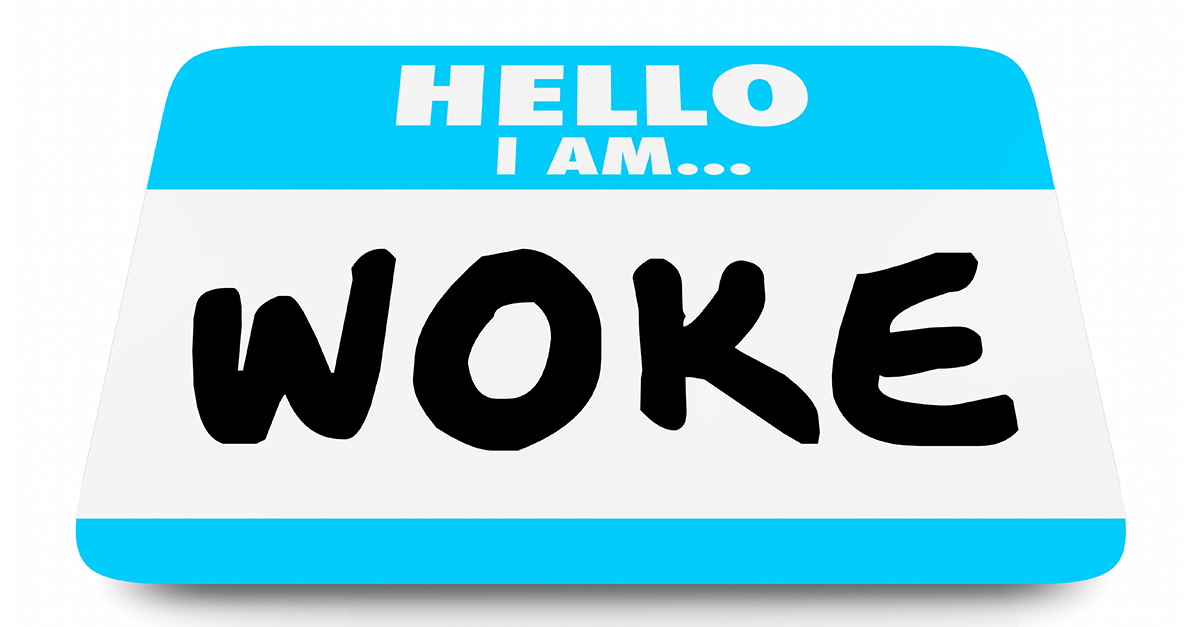


Get a free copy of Parental Rights & Education when you subscribe to our newsletter!

“The seven theological issues with wokeness that Strachan enumerated can be boiled down to one overarching, deadly critique: Wokeness isn’t just an unbiblical and ungodly system, it’s an entirely different and false religion.”
–WILLIAM WOLFE
Earlier this week we celebrated one of the most non-woke holidays on our American calendar: Independence Day. The Fourth of July is a fantastic reminder that the United States of America was built on Christian principles and bound together by certain commitments — enumerated in the Declaration of Independence and the Constitution — which are antithetically opposed to the poison of wokeness.
For example, the Declaration humbly acknowledges that all mankind is equal (and not that some men, even if they pretend to be women, are more equal than others) when it argues people are deserving of “the separate and equal station to which the Laws of Nature and of Nature’s God entitle them.”
This is followed immediately by that famous line: “We hold these truths to be self-evident, that all men are created equal, that they are endowed by their Creator with certain unalienable Rights, that among these are Life, Liberty and the pursuit of Happiness.”
Unfortunately, if these truths were indeed still self-evident, wokeness would never have gained the vice-gripping toehold it now has on American life. Yet as long as the twilight’s last gleaming still shines, there is hope.
As we search for some of that hope, let’s turn to another summer event. Two years back, theology professor Dr. Owen Strachan lit up wokeness with another July offering, the release of his book Christianity and Wokeness: How the Social Justice Movement Is Hijacking the Gospel — and the Way to Stop It. While not quite as historic as Independence Day, but still full of faithful fireworks (albeit, and perhaps unfortunately, only metaphorical ones), Strachan explains that he wrote this book to “bring Christians (and any interested friends and conversation partners) up to speed on wokeness and then to give an answer to this system.”
Strachan rightly sees the act of putting wokeness into the Christian courtroom and cross-examining it with the Bible as obedience to Paul’s command in Colossians 2:8 that we should: “See to it that no one takes you captive by philosophy and empty deceit, according to human tradition, according to the elemental spirits of the world, and not according to Christ.”
And wokeness is — if nothing else — “not according to Christ.”
Throughout Christianity and Wokeness, Strachan presents a measured, thoughtful, and biblical critique of the many problems with wokeness. In fact, as part of the first half of the book, he lists no less than 14 points to expose how wokeness is an ungodly system from both a theological and cultural lens. I want to share those with you here in short, bullet-point form with some brief commentary so you can be equipped to stand against wokeness wherever you might encounter it — in the public square, at your kid’s school, in your workplace, or even worse, in the pulpit of your church.
In Part 1 of my own series here, I will highlight the seven points of concern Strachan outlines in Chapter 3: “Why Is Wokeness an Ungodly System? Part One: Theological Issues.” Then, in Part 2, I will review the other seven points of concern he raises against wokeness in Chapter 4: “Why Is Wokeness an Ungodly System? Part One: Cultural Issues.” Part 1 with Part 1, Part 2 with Part 2. You get the math. So here goes:
Here Strachan gets at one of the fatal flaws of wokeness: Because it misunderstands the human condition, it is unable to write a helpful prescription for countering any real instances of injustice. Wokeness rejects the biblical doctrine that we are all made in the image of God, and therefore deserving to be treated with equality, but that we are all sinners, and therefore in need of redemption. Strachan argues that “this means that we are not fundamentally disunited, but united by our common theistic formation. We are one human race. Sin scrambles this unity, yes, but it endures, nonetheless. As humans, we are not fundamentally different but fundamentally alike.”
Building on the first point, Strachan shows how, because wokeness rejects the biblical understanding of sin, it has to invent a new “original sin” — whiteness: “The entire category outlined here is problematic. Just as ‘whiteness’ is not uniquely wicked, neither is there any such thing as ‘whiteness.’”
Under the woke rubric, since white people are the only real sinners, they are the only ones who can ever truly be “racist.” The Bible begs to differ. We learn in 1 Corinthians 4:5 that only God can know the purposes of our hearts — something the shade of our skin color can never reveal.
This is the classic Marxist division of the world: oppressed and oppressor. But as Strachan explains, “This is not a biblical approach. People of any background or ethnicity can oppress others.” Furthermore, authority and “power structures” will always exist (and are even good) and those who are in it are not necessarily oppressive merely by being in power: “Instead, throughout Scripture we see God expressly granting power and authority and influence to some and not others.”
Because wokeness knows nothing of true forgiveness and the power of the Gospel, those trapped in this mindset can never find peace. Strachan points out that “As wokeness binds us, it drains us of compassion. This is deeply ironic, because wokeness marches under the banner of tolerance, unity, and progress. But remember this: No ungodly system truly fosters such virtues.” The woke love to chant “no justice, no peace.” But the peace they seek can only be found in the cross of Christ — the last place most of them ever stop to look.
Wokeness is a package deal, not a buffet. When you adopt it as your worldview, you don’t get to just take the bits about race or economics that you like while leaving its understanding of sexual ethics and marriage behind. As Strachan shows, “Christianity and intersectionality—and wokeness more broadly—have polar-opposite views of the sexes” which leads to its support for homosexuality and transgenderism, its opposition to biblical complementarity, and its desire, in the words of Black Lives Matter (one of the most woke organizations out there), to “disrupt the Western-prescribed nuclear family structure.”
To be clear, that would be the biblically-prescribed family structure — and the woke want to burn it down.
Finally, Strachan reveals how wokeness denies the very Gospel of Jesus Christ. Remember, according to wokeness, the greatest sin out there is the sin of “whiteness.” Strachan writes, “Consequently, we overcome this condition not through justifying faith grounded in the person and work of Christ, but through performing acts of cultural repentance and by becoming ‘antiracist.’ This antiracist engagement must consist of concrete acts of secular penance. It is in every sense a works-based system.”
In this act, wokeness denies the power and promise of the cross, which offers free and unmerited grace to all who repent of their own works and trust entirely in the finished work of Christ.
Strachan drives this home by writing,
“We are now equipped to understand what so few do today: that wokeness violates what the Apostle Paul expressly teaches. In Romans 8:1, we read, ‘There is therefore now no condemnation for those who are in Christ Jesus.’”
Altogether, the seven theological issues with wokeness that Strachan enumerated can be boiled down to one overarching, deadly critique: Wokeness isn’t just an unbiblical and ungodly system, it’s an entirely different and false religion.
Of course, theological issues have real-world consequences. Thus, in the next article in this series, we will consider seven cultural issues with wokeness, according to Strachan.
You can read Part 2 of this series by clicking here.
Follow William on Twitter! @William_E_Wolfe
Ready to dive deeper into the intersection of faith and policy? Head over to our Theology of Politics series page where we’ve published several long-form pieces that will help Christians navigate where their faith should direct them on political issues.
Christian conservative news and issues that matter. Curated just for you!
